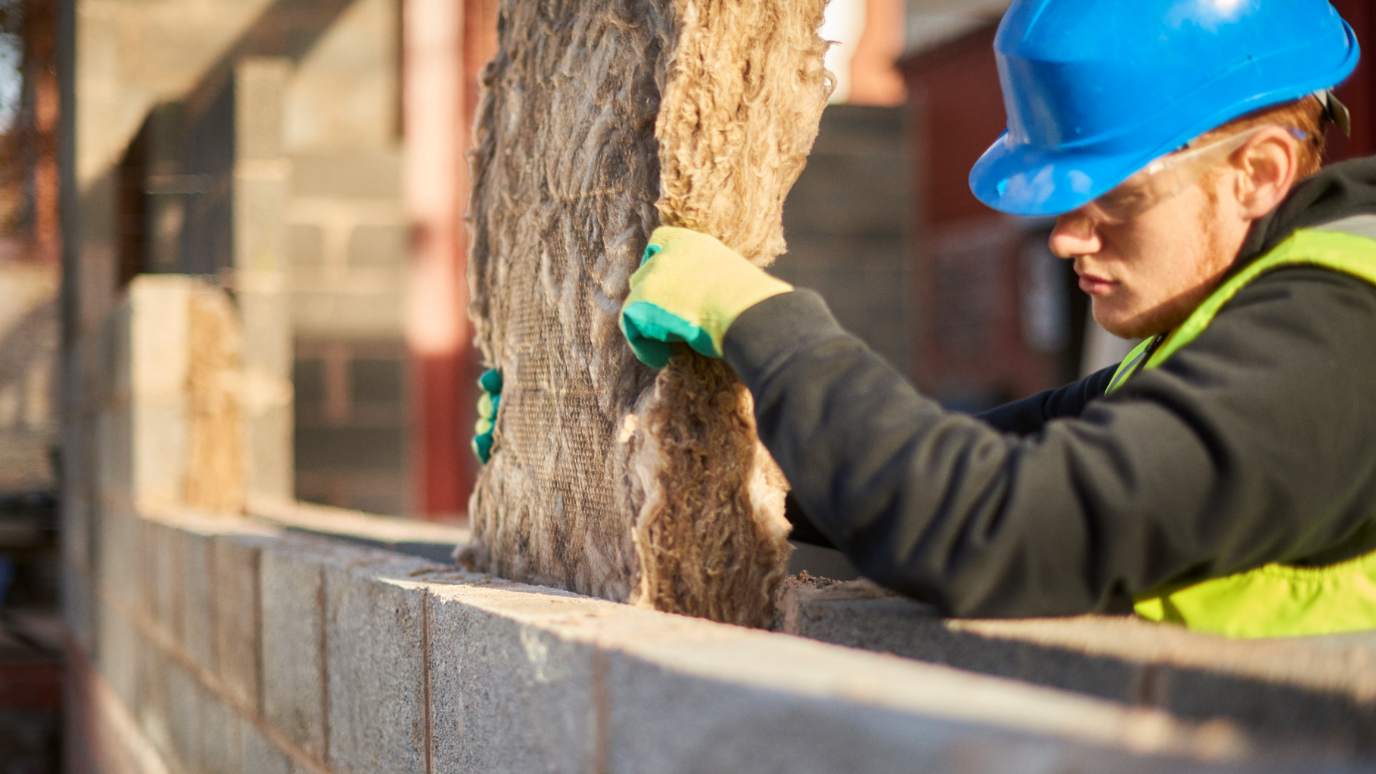Labour plans tougher energy rules for social homes

- Published
The energy secretary has announced plans to raise energy efficiency rules for social housing, in a bid to cut fuel bills for tenants and meet climate goals.
Speaking at Labour conference, Ed Miliband unveiled plans for all social homes in England to achieve an energy performance certificate (EPC) rating of at least C by 2030.
The plan, which will be subject to a consultation later this year, widens an existing Labour pledge to apply the new rule to private landlords.
A third of social homes, around 1.2m, are currently rated D or below and will require new insulation, windows and heating systems to come up to scratch.
What help can I get with home insulation?
- Published28 November 2022
Row erupts over cost of Labour's home insulation plan
- Published7 February 2024
The Conservatives originally planned to force all private landlords to reach the standard by 2028, but this was scrapped by Rishi Sunak last year, who argued the increased costs could push up rents.
Labour promised to reverse this in its election manifesto, whilst giving private landlords a further two years to reach at least a C rating.
Now the party has announced the requirement to reach level C by 2030 will also apply to councils and housing associations in England.
In a speech to the conference in Liverpool, Miliband said the plan would lift a million people out of "fuel poverty", and showed "the difference a Labour government makes".
Currently, private properties in England and Wales need to reach at least level E to be rented out.
Landlords have to pay for upgrades to reach this level, such as replacing boilers, improving insulation, and double-glazing windows, with costs capped at £3,500.
Retrofitting requirements
The EPC system, introduced in 2007, rates properties by energy efficiency, with the most efficient properties rated A and the least efficient G.
Official statistics show efficiency is generally higher in the social rented sector, with around 70% of properties rated A-C in 2022, compared to 44% in private rentals.
But that still leaves around 1.2m social properties in England below a D rating, in addition to 2.6m properties being rented privately.
In 2020, Faithorn Farrell Timms, a surveying firm, put the average extra cost of bringing a social housing property up to level C at between £3,000 and £4,000.
But it added that costs could exceed £25,000 for the most challenging properties, such as those with older heating systems and little or no loft insulation.
The National Housing Federation, which represents housing associations, said they needed a “commitment to long-term funding from the government to ensure they have the resources they need” to make necessary upgrades.
Head of member relations Kevin Garvey said meeting Labour's target would require housing associations to double the current pace of retrofitting homes, as well as "clear plans for homes that are harder to decarbonise".
The Local Government Association, an umbrella body for councils, also underlined the need for “sufficient long-term funding” to meet the targets, given “wider financial pressures on social housing funding”.
Insulation funding
Labour has promised £13.2bn in grants and low-interest loans over the next five years to help meet the 2030 deadline, with a target to upgrade five million homes.
Although around double the total allocated by the previous Tory government, this total was scaled back ahead of the election from an initial plan to spend £60bn over 10 years.
The Times has reported that Labour is expected to consult on capping costs to landlords at around £10,000, the same level previously announced by the Conservatives to meet the 2028 deadline.
Property firm Savills has previously estimated that landlords would be required to spend around £25bn to bring private properties up to standard, assuming a £10,000 cap is put in place, with the biggest costs in upgrading older stock.